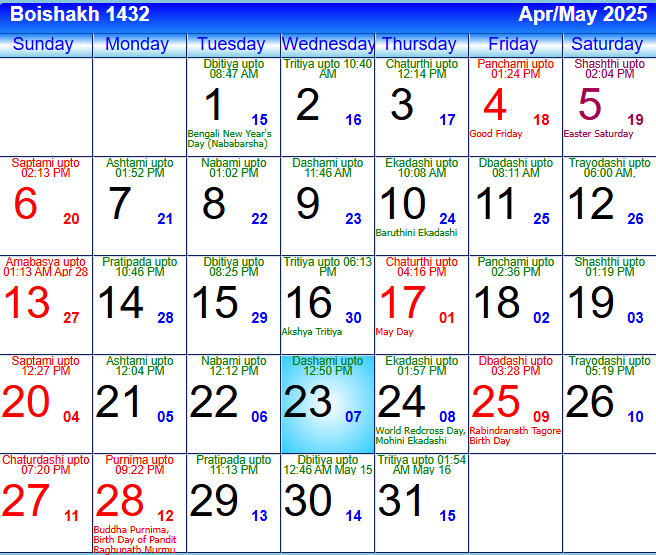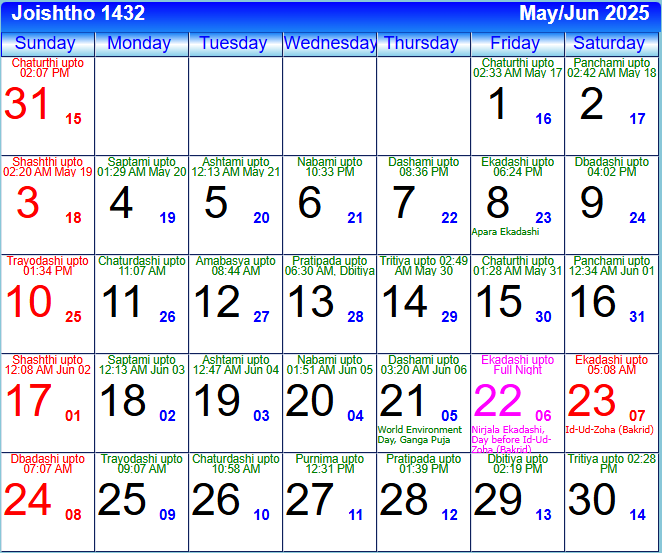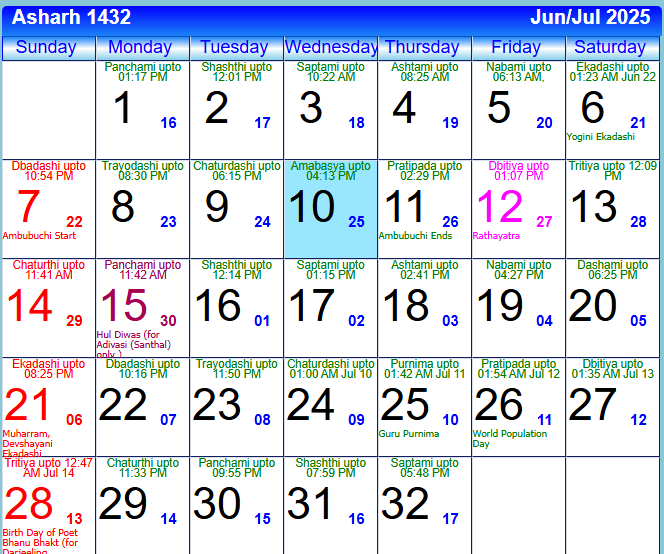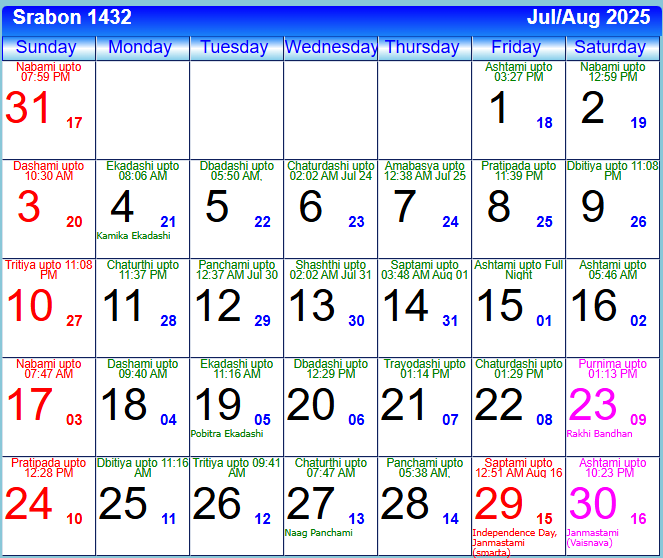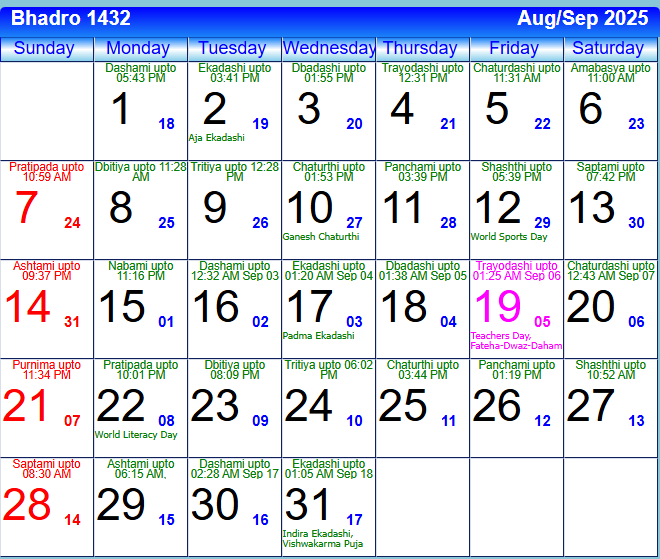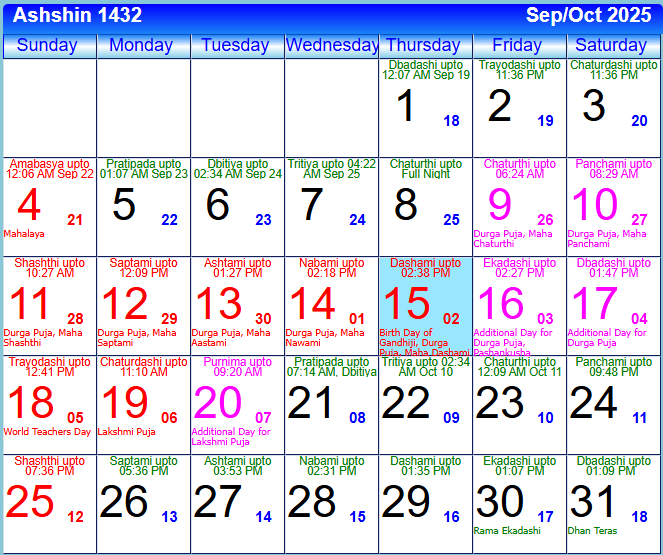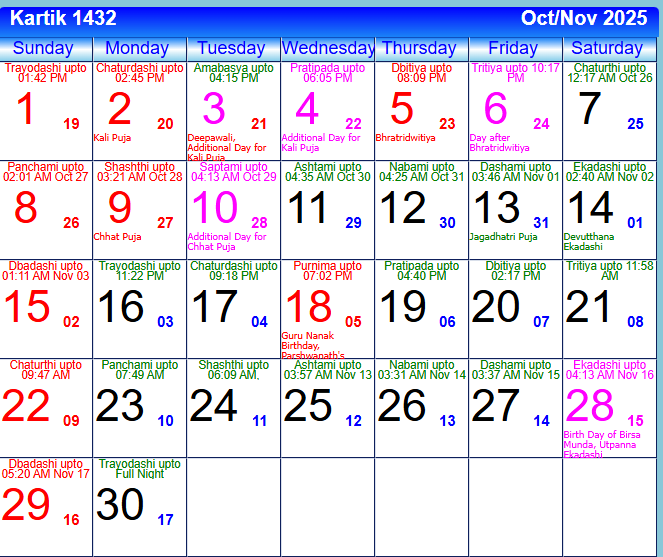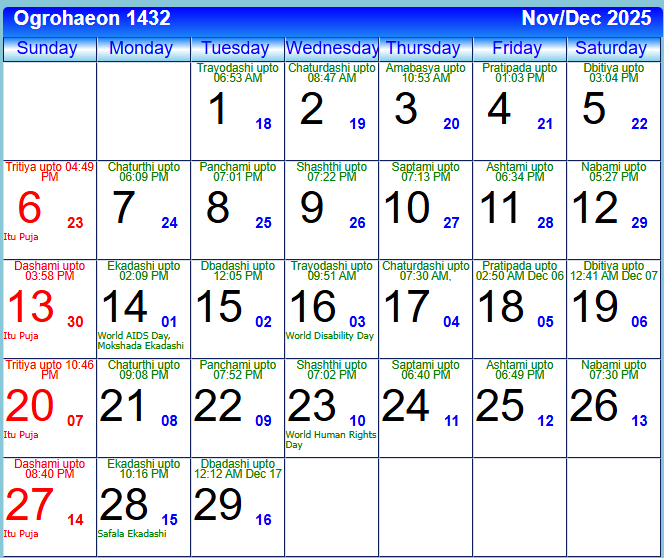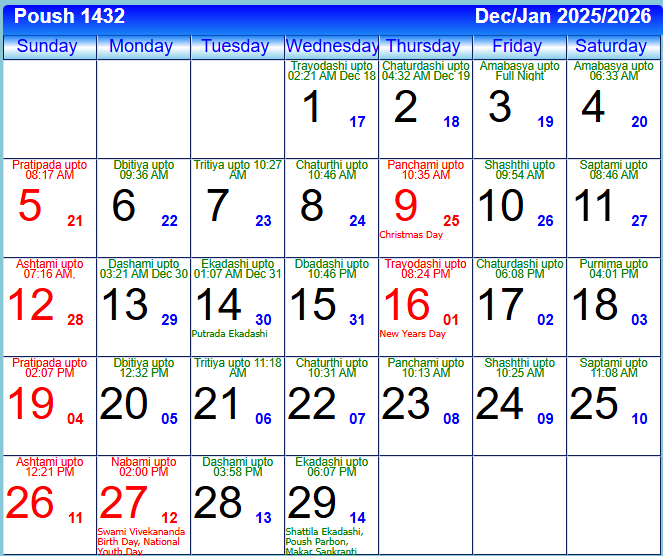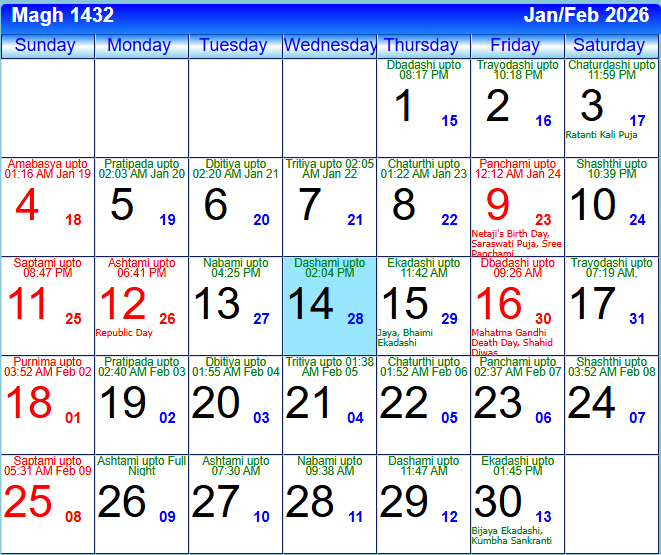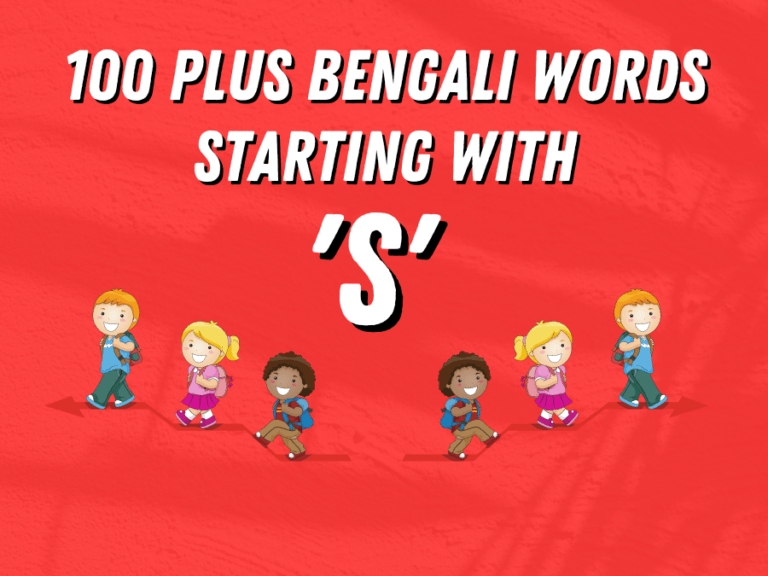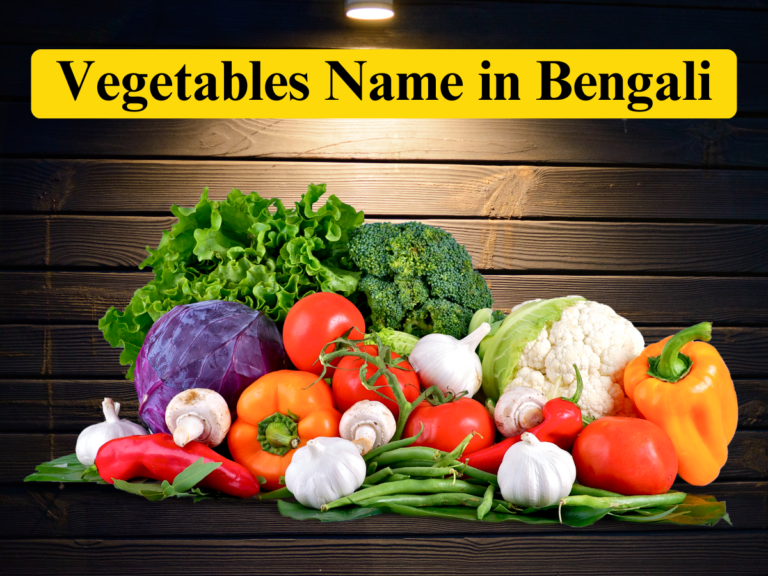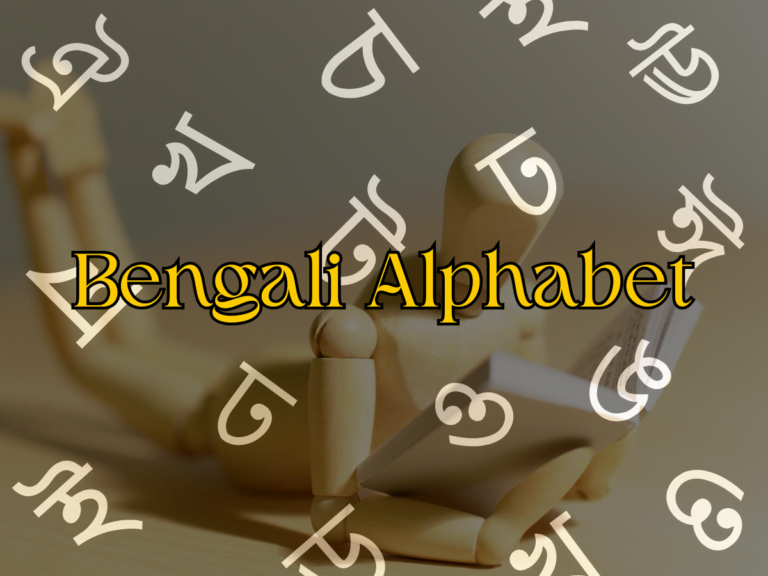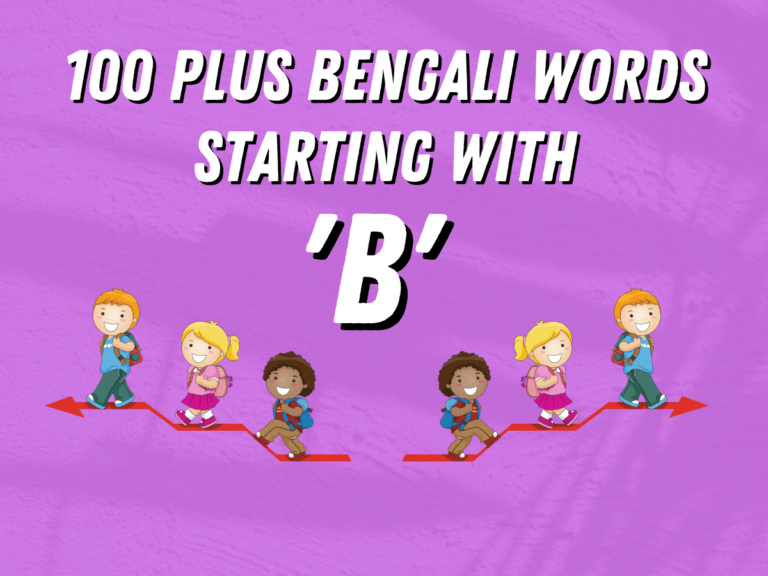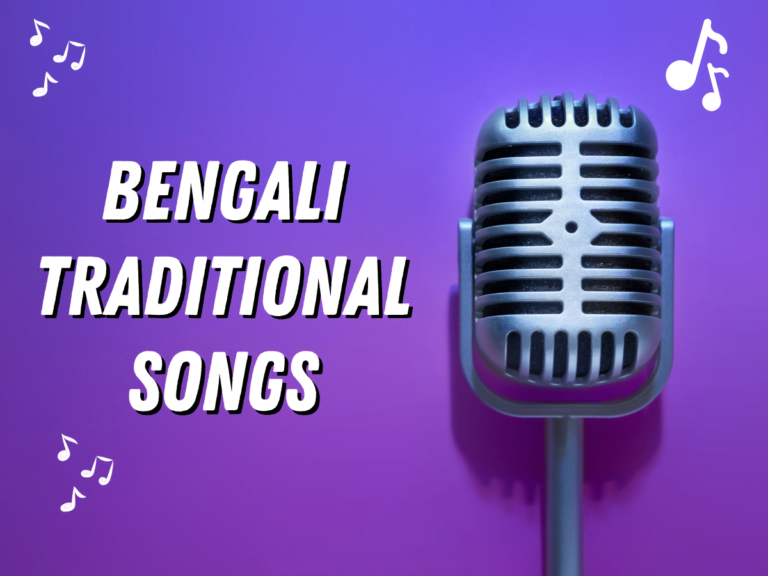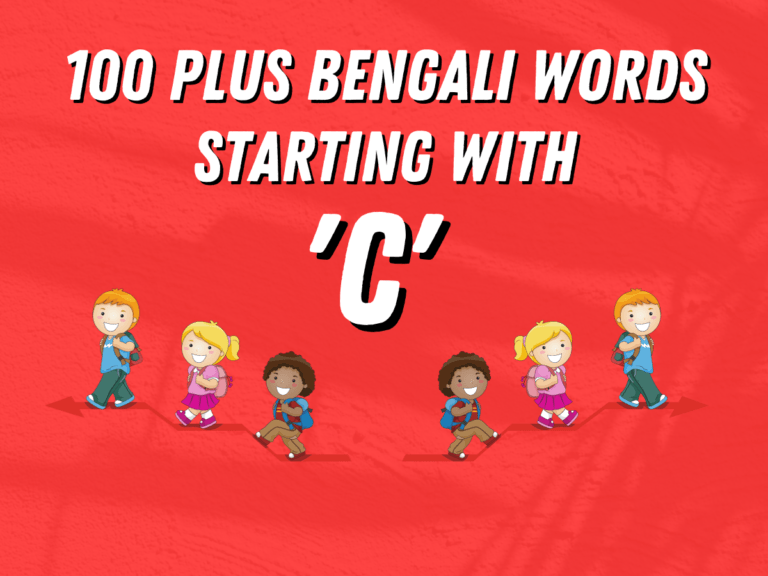Bengali / Bangla Calendar 1432 – বাংলা ক্যালেন্ডার
The Bengali calendar, also known as the Bangla calendar, is a traditional calendar used in the Bengal region of South Asia, primarily in Bangladesh and the Indian state of West Bengal, Tripura, Assam, and Jharkhand. It is based on the lunar calendar and incorporates elements from both the Hindu and Islamic calendars.
Boishakh (বৈশাখ): Mid-April to mid-May

Joishtho (জ্যৈষ্ঠ): Mid-May to mid-June

Asharh (আষাঢ়): Mid-June to mid-July

Srabon (শ্রাবণ): Mid-July to mid-August

Bhadro (ভাদ্র): Mid-August to mid-September

Ashshin (আশ্বিন): Mid-September to mid-October

Kartik (কার্তিক): Mid-October to mid-November

Ogrohaeon (অগ্রহায়ণ): Mid-November to mid-December

Poush (পৌষ): Mid-December to mid-January

Magh (মাঘ): Mid-January to mid-February

Falgun (ফাল্গুন): Mid-February to mid-March
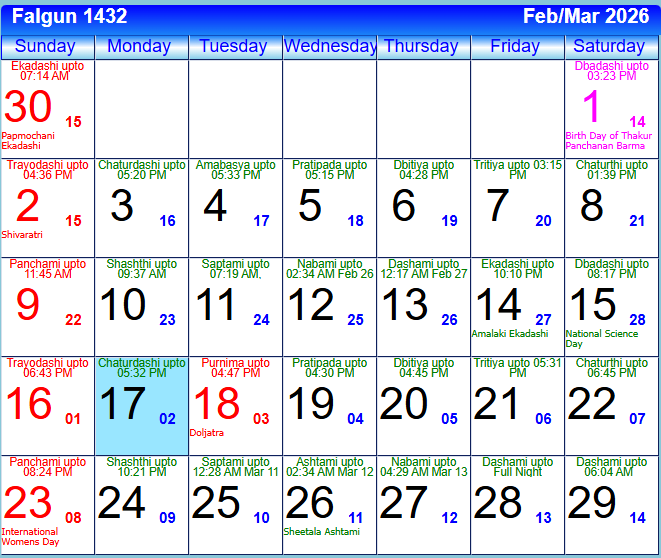
Choitro (চৈত্র): Mid-March to mid-April
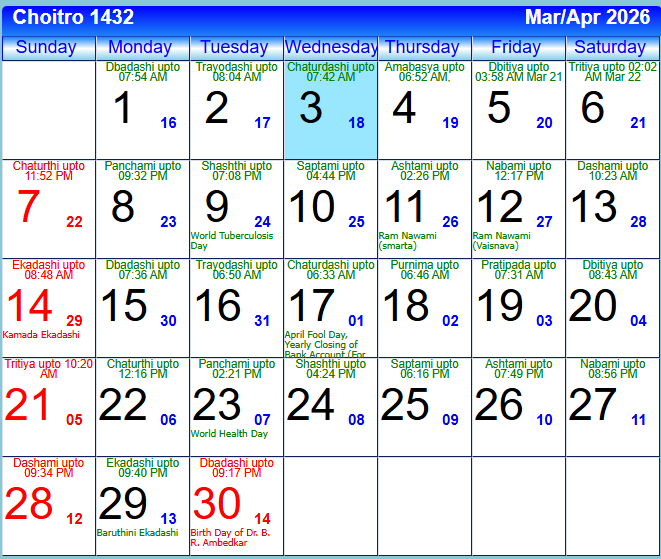
The Bengali calendar is a lunisolar calendar, which means that it is based on both the sun and the moon. The months are approximately 30 days long, but they can vary slightly depending on the lunar cycle. The Bengali calendar also has leap years, which occur every 3 years.
The Bengali calendar is an important part of Bengali culture and heritage. It is used to mark important festivals and events, and it is also used for astrological purposes.
The Bengali calendar comprises 12 months:
Boishakh (বৈশাখ) – April 14 to May 14
Joishtho (জ্যৈষ্ঠ) – May 15 to June 14
Asharh (আষাঢ়) – June 15 to July 15
Srabon (শ্রাবণ) – July 16 to August 15
Bhadro (ভাদ্র) – August 16 to September 15
Ashshin (আশ্বিন) – September 16 to October 15
Kartik (কার্তিক) – October 16 to November 15
Ogrohayon (অগ্রহায়ণ) – November 16 to December 15
Poush (পৌষ) – December 16 to January 14
Magh (মাঘ) – January 15 to February 13
Falgun (ফাল্গুন) – February 14 to March 14
Choitro (চৈত্র) – March 15 to April 13
Bengali is a language that can be spoken in various ways depending on the location. বাংলা এমন একটি ভাষা যা অবস্থানের উপর নির্ভর করে বিভিন্ন উপায়ে বলা যায়। Bangla emon akti bhasha ja obosthaner upor nirvor kore bibhirnno upaye bola jaai। It's not uncommon to hear the same sentence pronounced differently in different places. একই বাক্য বিভিন্ন জায়গায় ভিন্নভাবে উচ্চারিত হওয়া অস্বাভাবিক নয়। Aki bakko bibhirnno jaigai bhirnnobhabe uchaarito howa osabhabik noy। Moreover, a word in Bengali can have two different pronunciations. তাছাড়া বাংলায় একটি শব্দের দুটি ভিন্ন উচ্চারণ থাকতে পারে। Tachara banglai ekti sobder duti bhirnno uchaaron thakte pare। যেমন- Jemon- ( for example ) আমি গতকাল গিয়েছিলাম, ( Ami Gotokal Giyechilam ) আমি কালকে গিয়েছিলাম, ( Ami kalke Giyechilam ) This sentence is called in English ( I want yesterday ) The sentance are the same but the sentace are different. The same word can be said in two ways. বাক্য একই কিন্তু বাক্য ভিন্ন। একই কথা দুইভাবে বলা যায়। Bakko eki kintu bakko bhirnno। aki kotha dubhabe bola jai। Our team Learn Bengali Now has written these posts in their own language, আমাদের টিম “বাংলা শিখুন এখন” এই পোস্টগুলি তাদের নিজস্ব ভাষায় লিখেছেন, amader team “Bangla Sikhun Akhon” ai postguli tader nijoshro bhasai likhechen, There may be some mistakes in this because Bengali language can be spoken in many ways. এতে কিছু ভুল থাকতে পারে কারণ বাংলা ভাষা নানাভাবে বলা যায়। ate kichu bhul thakte pare karon bangla bhasha nananbhabe bola jai।


